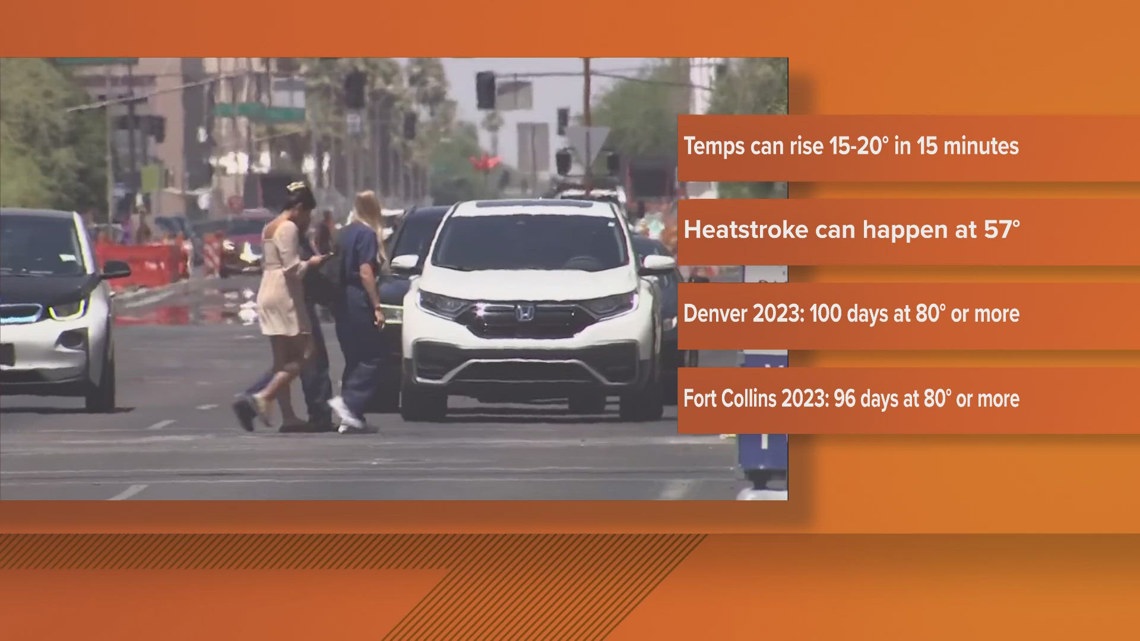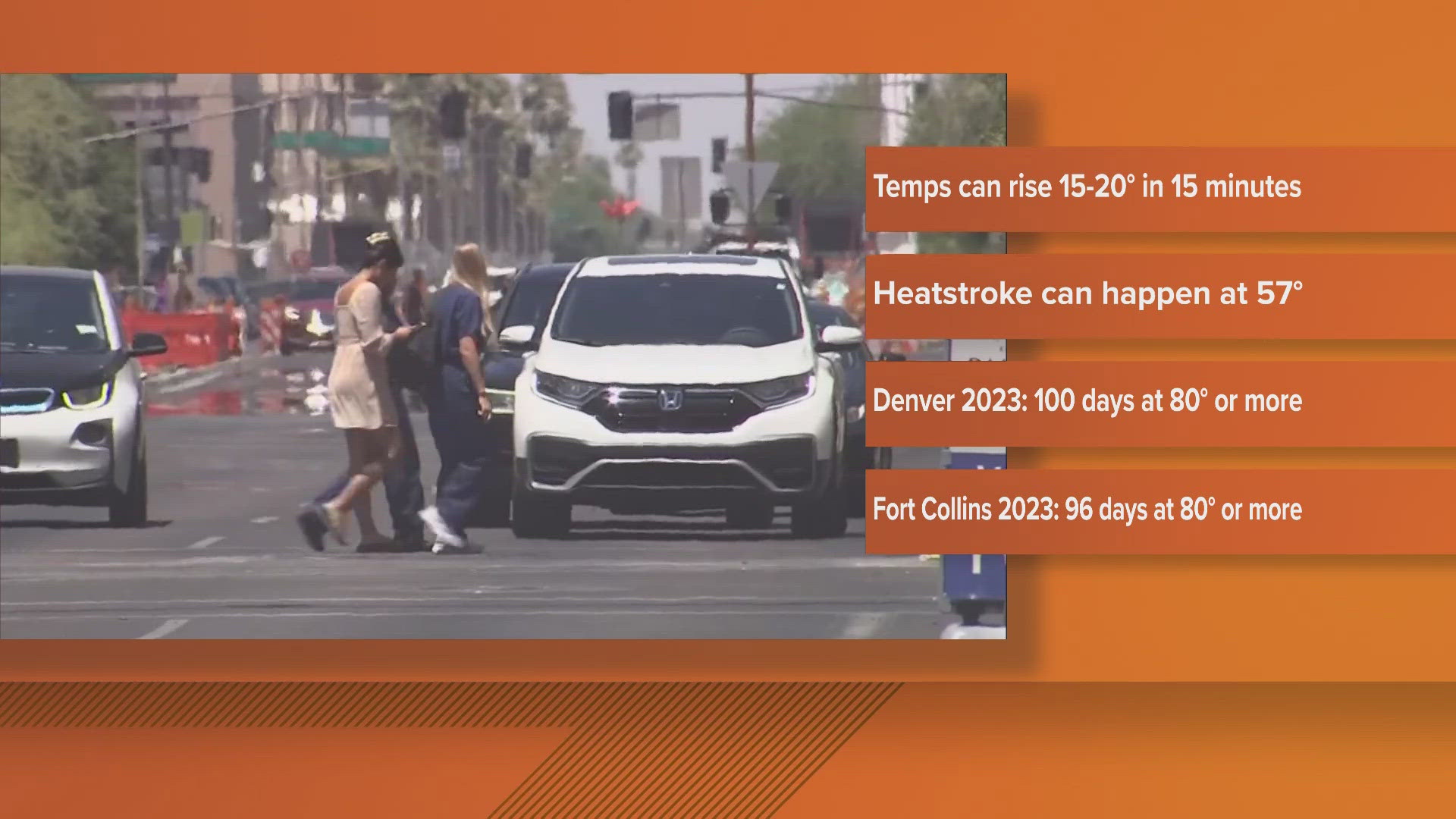DENVER — As Colorado heads into its hottest months of the year, Colorado Department of Transportation launched a campaign to warn drivers about the dangers of heatstroke.
Last summer, there were 134 days over 80 degrees in Grand Junction, 100 days over 80 degrees in Denver, 96 days over 80 degrees in Fort Collins, and 89 days over 80 degrees in Colorado Springs.
“It only takes a few minutes for the temperature of a vehicle to reach 100 degrees, which can be life threatening to any child," said Sam Cole, CDOT traffic safety manager. "It can lead to heat stroke or even something worse. Play it safe, park the car, bring your kid, even if it’s only for 5-10 minutes because you’re just asking for trouble if you leave your kid an unattended vehicle."
A child’s body temperature rises three to five times faster than adults, and older individuals are also more sensitive to heat. Additionally, people with disabilities are at a higher risk of heatstroke if they are left unattended in a hot car, as they may not be able to exit on their own or communicate their needs to a caregiver.
“Heat stroke is something where your body has no longer the ability to control your own temperature," said Ann Marie Albright, family nurse practitioner with AdventHealth Avista. "Before you get heat stroke, you get some heat exhaustion symptoms. That’s some racing of your heart, maybe you notice that feeling of lethargic, feeling flushed, rash, all those are signs of heat exhaustion."


Over the last 25 years in Colorado, vehicular heatstroke has resulted in the death of seven children, but with zero reported deaths over the past decade. Children knowingly left in cars by their caregivers account for 21% of vehicular heatstroke fatalities nationwide.
“People need to understand that parking in the shade, or cracking your window is not going to solve the problem and not prevent a vehicle from heating up," Cole said. "Vehicles can heat up to very high levels in a matter of minutes, even if you are just parked in the shade."
CDOT recommends:
- Look before you lock your car
- Leave passenger’s belongings, such as a toy or stuffed animal, in the front seat
- Enter your passenger’s destination in your GPS as a reminder.
- Have a plan with your childcare provider to call if your child does not show up
Colorado passed HB17-1179, which provides Coloradans immunity from civil and criminal liability for a person who forcibly enters a locked vehicle to provide aid to an at-risk person or animal. If you spot a pet or anyone inside a hot car who appears flushed, distressed or dehydrated, provide help or call 911.
SUGGESTED VIDEOS: Latest from 9NEWS

